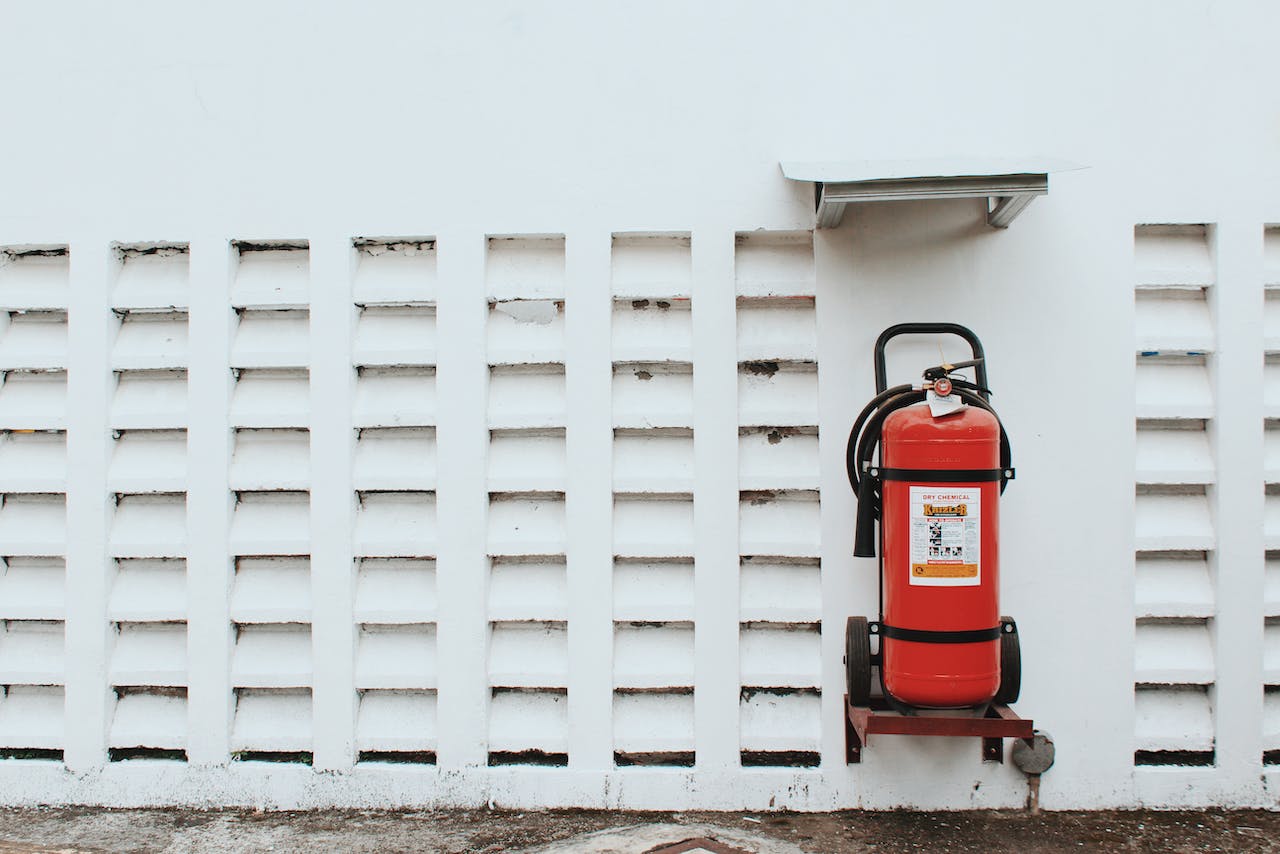At a glance:
- Address uneven flooring, inadequate lighting, and crowd management for seamless attendee navigation and accident prevention.
- Ensure first aid readiness, food safety, and proactive measures for pandemics or contagious diseases.
- Implement access control, perimeter security, and theft prevention strategies, especially for high-profile guests.
- Evaluate event-specific hazards, prioritise risks, and craft a comprehensive safety plan for swift, coordinated responses during emergencies.

Are you ready to transform your events from ordinary to extraordinary? Imagine orchestrating a flawless event where every detail is impeccably planned and executed. That’s the hallmark of Peanut Production, an end-to-end event management service that thrives on innovation, creativity, and strategic audience engagement. However, behind every mesmerising event lies a crucial aspect often overlooked – safety.
Welcome to our comprehensive guide shedding light on “Common Safety Risks Every Event Organiser Should Plan For.” At Peanut Production, we understand the paramount significance of safety in event planning. Beyond creativity and strategy, ensuring a safe environment is pivotal to hosting successful and unforgettable events.
Understanding Common Safety Risks
Physical Safety Risks
One of the critical concerns at event venues is uneven flooring, which can pose a tripping hazard. Event organisers must meticulously inspect the venue beforehand to identify any uneven surfaces, such as steps, ramps, or flooring materials, that might cause attendees to stumble. Rectifying these issues or implementing clear warnings/signage helps prevent accidents.
Likewise, insufficient or inadequate lighting can exacerbate safety risks. Dimly lit areas may obscure obstacles or hazards, increasing the chances of accidents. To mitigate this, event planners should ensure adequate lighting throughout the venue, especially in areas prone to low visibility. Properly illuminated spaces improve attendee navigation and reduce potential accidents.
Crowd Management and control
Handling large crowds requires effective planning and execution. Event organisers need to establish crowd control measures, including clearly marked entrances and exits, strategically positioned barriers, and designated pathways. Efficient crowd management not only ensures attendee safety but also facilitates smoother operations during the event.
Fire Hazards and Emergency Exits
Fire safety is a critical concern at any event. Event planners should assess fire hazards, such as flammable materials or faulty electrical equipment, and take preventive measures. Implementing fire safety protocols, providing fire extinguishers, and educating staff on evacuation procedures are vital steps to mitigate fire risks.
Clear and accessible emergency exits are imperative for attendee safety. Event venues must have well-marked emergency exits that remain unobstructed throughout the event. Organisers need to plan and communicate evacuation routes to ensure attendees can swiftly and safely exit in case of an emergency.
Weather-Related Risks
Outdoor events are susceptible to weather fluctuations. Event organisers should closely monitor weather forecasts and have contingency plans in place for adverse conditions such as rain, extreme heat, or storms. This may involve setting up shelters, securing equipment against wind, or providing alternative indoor spaces in case of inclement weather. Proper planning ensures a seamless experience for attendees, regardless of outdoor conditions.
Health and Medical Risks
Events are vibrant gatherings where attendee safety and health take precedence. Addressing health and medical risks involves proactive measures and comprehensive planning to create a secure and nurturing environment for all participants.
First Aid and Medical Emergencies
Having a well-equipped and strategically located first aid station or medical team on-site is crucial. Trained personnel should be readily available to provide immediate assistance in case of accidents, injuries, or medical emergencies. Rapid response and effective care can significantly minimise the impact of health-related incidents during an event.
Establishing clear and concise emergency response protocols is essential. Event staff should be trained to handle emergencies efficiently, know the location of first aid kits, and be familiar with basic first aid procedures. Additionally, communication channels for seeking medical assistance and contacting emergency services should be readily accessible to all attendees.
Food Safety and Allergies
Ensuring the safety and quality of food served at events is imperative. Event organisers should collaborate with reputable caterers and vendors who comply with food safety standards and regulations. Proper food handling, storage, and preparation practices must be adhered to strictly to prevent food borne illnesses.
Accommodating attendees with food allergies or dietary restrictions is crucial. Event planners should gather information about attendees’ dietary needs in advance and work with catering services to offer allergen-free or alternative food options. Clearly labelling food items with allergen information helps attendees make informed choices and prevents allergic reactions.
Pandemic or Contagious Diseases
In the wake of pandemics or contagious diseases, event organisers must implement proactive health measures. This includes adhering to health guidelines and regulations provided by health authorities, conducting health screenings or temperature checks if necessary, and promoting good hygiene practices among attendees.
Developing contingency plans specifically tailored to health emergencies, such as a contagious outbreak, is crucial. These plans may involve rapid response strategies, isolation areas for symptomatic individuals, and protocols for communication with health authorities to contain and manage potential health risks during the event.
Security Risks
Events are susceptible to various security threats that demand proactive measures and a comprehensive security framework to ensure the safety and security of attendees, assets, and the overall event environment.
Unauthorised Access
Managing and controlling access to event zones is essential to prevent unauthorised entry. Event organisers must establish clear boundaries and implement effective access control measures, such as checkpoints, wristbands, or identification checks. Limiting access to authorised personnel and attendees helps maintain security within designated event areas.
Perimeter Security: Securing the perimeter of the event venue is crucial. Fencing, barriers, or controlled entry points help regulate and monitor access, reducing the risk of unauthorised individuals entering the event space. Additionally, deploying trained personnel to oversee entry and exit points enhances overall security.
Theft and Vandalism
Preventing theft and vandalism requires proactive measures. Event organisers should safeguard event assets, including equipment, valuables, and decorations. Implementing surveillance systems, securing storage areas, and deploying security personnel to patrol vulnerable areas help deter theft and prevent damage to property.
Continuous monitoring of the event premises through surveillance cameras or security patrols is essential. Having eyes on different areas of the venue helps identify suspicious behaviour or activities, enabling prompt intervention to prevent potential theft or vandalism incidents.
Safety of High-Profile Guests
High-profile guests, including VIPs and performers, often require specialised security protocols. Event organisers must collaborate with professional security services to provide personalised protection plans for these individuals. This might involve dedicated security details, secure transportation arrangements, and restricted access zones.
Advance Planning: Conducting thorough risk assessments specific to high-profile guests aids in identifying potential security threats. Advanced planning allows event organisers to implement tailored security measures to safeguard VIPs and performers throughout the event duration.

Importance of Risk Assessment and Planning
Evaluating Risks
Event-specific hazards vary and could range from physical risks like structural weaknesses in the venue to health hazards like food preparation areas. Event planners must conduct thorough assessments to identify these potential risks unique to their event.
This process involves evaluating the likelihood of each identified risk occurring and assessing the potential severity of its impact. This assessment aids in prioritising risks for effective mitigation strategies.
Once risks are identified and assessed, prioritisation becomes crucial. By categorising risks based on their probability and consequences, event organisers can focus their efforts on addressing high-impact and high-probability risks first.
Crafting a Comprehensive Safety Plan
Developing well-defined emergency protocols and evacuation plans tailored to the event’s nature and venue layout is imperative. These plans outline step-by-step procedures for various emergencies like fire outbreaks, natural disasters, or medical crises.
Comprehensive training programs for event staff are essential. Staff should be well-versed in emergency procedures, first aid, crowd management, and communication protocols to ensure swift and coordinated actions in critical situations.
Establishing collaborations with local emergency services, such as fire departments, medical response teams, and law enforcement, is vital. This partnership ensures a coordinated response in emergencies and quick access to professional assistance when required.
Besides emergency responses, proactive measures such as enhancing security protocols, deploying surveillance systems, and creating contingency plans for unexpected scenarios contribute to uninterrupted event experiences.
In conclusion, prioritising safety in event planning isn’t just a requisite; it’s a commitment to excellence. Event management agencies in Australia must embrace the significance of a meticulously designed safety plan to orchestrate seamless, successful, and secure events. Remember, safety isn’t an option; it’s an imperative element contributing to event success.
At Peanut Production, we recognise the significance of safety in curating remarkable events. Join us in championing safety and witness how it transforms events into extraordinary experiences, ensuring a legacy of success and unparalleled guest satisfaction.


